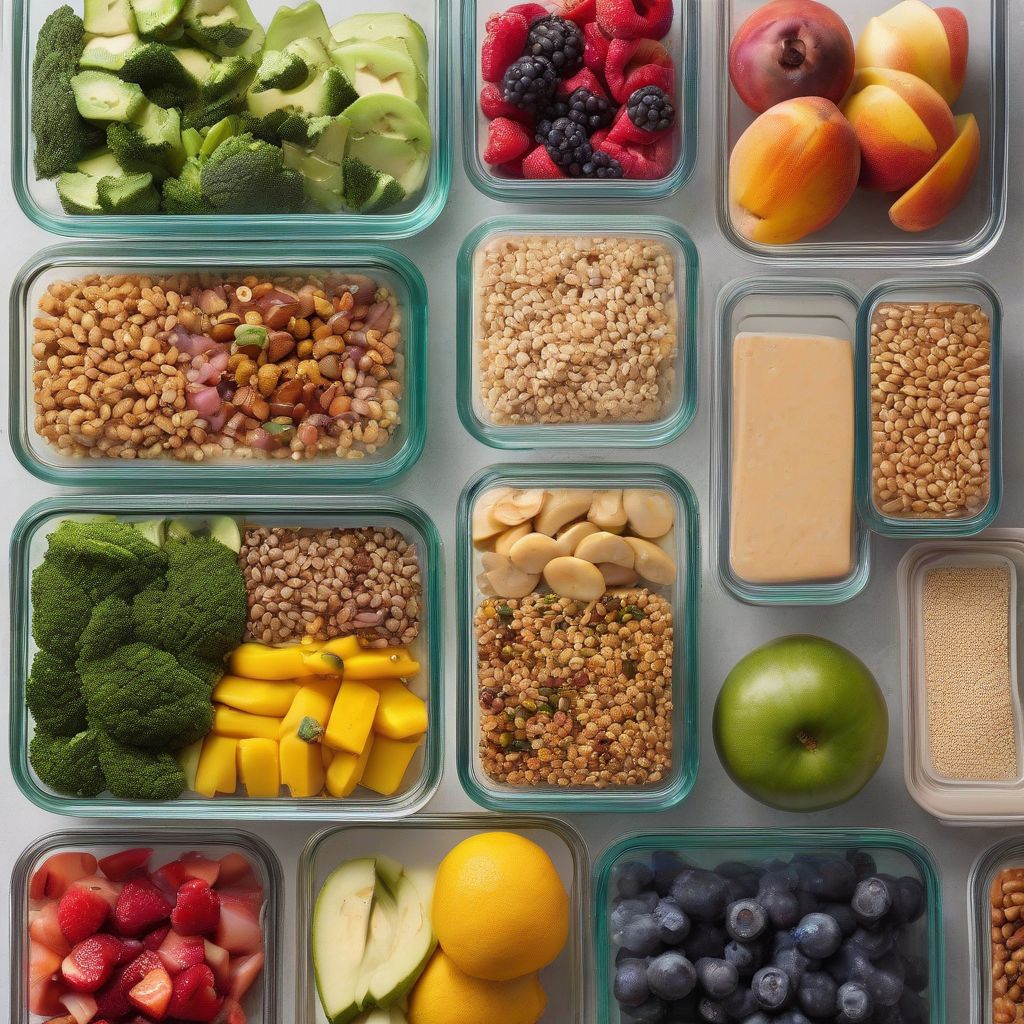Have you ever dreamt of feeling lighter, healthier, and more energized? What if I told you that embracing a plant-based lifestyle could be your key to unlocking these benefits and more?
As a nutritionist and meal prep coach, I’ve witnessed firsthand the transformative power of plant-based eating. It’s not just a trend; it’s a conscious choice to nourish your body with the goodness of nature. But transitioning to a plant-based diet can feel overwhelming, especially if you’re unsure where to begin. Don’t worry; I’m here to guide you on your journey to plant-based enlightenment!
Understanding the Basics of Plant-Based Nutrition
First, let’s clarify what it means to eat plant-based. Contrary to popular belief, it’s not about restricting yourself to salads and tofu (unless that’s your thing!). It’s about incorporating more fruits, vegetables, legumes, nuts, seeds, and whole grains into your diet while reducing or eliminating animal products.
Why Choose a Plant-Based Lifestyle?
The reasons for adopting a plant-based lifestyle are as diverse as the plant kingdom itself!
- Health Benefits: Numerous studies have linked plant-based diets to a lower risk of chronic diseases such as heart disease, type 2 diabetes, and certain types of cancer.
- Environmental Sustainability: Plant-based eating is a powerful way to reduce your environmental footprint, as animal agriculture is a significant contributor to greenhouse gas emissions.
- Ethical Concerns: For many, a plant-based lifestyle aligns with their values of animal welfare and compassion.
Essential Nutrients to Focus On
When transitioning to a plant-based diet, it’s crucial to ensure you’re getting all the nutrients your body needs.
- Protein: Don’t fall for the myth that plant-based eaters lack protein! Excellent sources include lentils, chickpeas, beans, tofu, tempeh, edamame, quinoa, and nuts.
- Iron: Leafy greens, beans, lentils, tofu, and fortified cereals are rich in iron. Pair these foods with a source of vitamin C (like citrus fruits or bell peppers) to enhance iron absorption.
- Calcium: Plant-based sources of calcium include leafy greens (like kale and collard greens), fortified plant milk, tofu, and tahini.
- Vitamin B12: This vitamin is primarily found in animal products, so supplementation is often recommended for those on a plant-based diet.
- Omega-3 Fatty Acids: Include flaxseeds, chia seeds, walnuts, and algae oil in your diet to ensure adequate omega-3 intake.
Navigating Your Plant-Based Journey
Now that you understand the fundamentals, let’s explore practical steps to make your transition smoother.
1. Start Gradually
Don’t feel pressured to overhaul your diet overnight. Begin by incorporating one or two plant-based meals into your week and gradually increase the frequency.
2. Explore New Recipes
The world of plant-based cuisine is bursting with flavor and creativity! Don’t be afraid to experiment with new recipes, ingredients, and cooking techniques.
3. Seek Out Resources
From cookbooks to online communities, there’s a wealth of information available to support your plant-based journey. Websites like Forks Over Knives, The Vegan Society, and the Physicians Committee for Responsible Medicine offer valuable resources.
4. Connect with Others
Joining online forums or local vegan/vegetarian groups can provide a sense of community and support. Sharing your experiences and challenges with others on a similar path can be incredibly motivating.
 Plant-Based Meal Prep
Plant-Based Meal Prep
Tips for Success
- Plan your meals: Meal planning is your secret weapon against impulsive unhealthy choices. It ensures you have nutritious, plant-based meals and snacks readily available.
- Read food labels: Familiarize yourself with food labels to identify hidden animal products and choose options that align with your dietary preferences.
- Don’t be afraid to ask for help: If you feel overwhelmed or have specific dietary concerns, don’t hesitate to consult with a registered dietitian or nutritionist specializing in plant-based nutrition.
Conclusion
Embarking on a plant-based journey is an empowering step toward a healthier, more sustainable, and compassionate lifestyle. By educating yourself, making gradual changes, and seeking support when needed, you can experience the transformative benefits of plant-based nutrition. Remember, every step you take, no matter how small, is a step in the right direction. Embrace the journey, and let your plate be a canvas for vibrant, delicious, and nourishing plant-based meals!
Start exploring the world of plant-based eating today, and discover the incredible impact it can have on your well-being and the planet. Share your plant-based discoveries and recipes in the comments below! I can’t wait to hear about your journey.
[amazon bestseller=”plant-based cookbook”]
